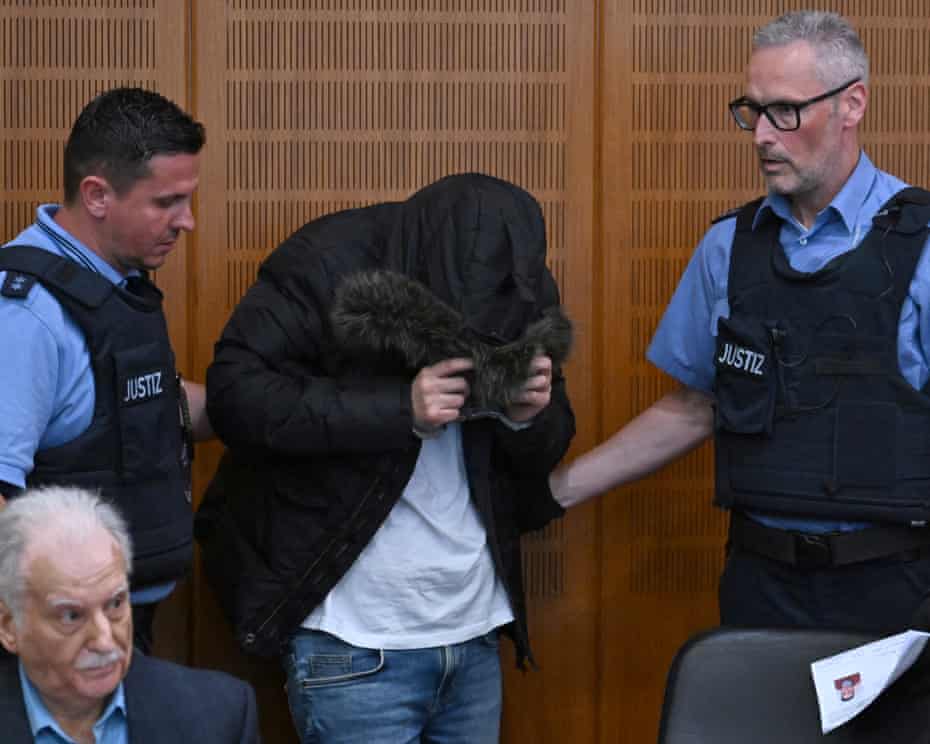In a landmark ruling, a German court has sentenced a Syrian doctor to life imprisonment for committing crimes against humanity, including murder and torture, during Syria’s brutal civil war. The case marks one of the most significant applications of the international legal principle of universal jurisdiction, allowing prosecution for war crimes committed abroad.
Dr. Alaa Mousa, 40, was found guilty by Frankfurt’s higher regional court of two counts of murder and eight counts of severe torture while serving as a junior doctor in military hospitals and intelligence prisons in the Syrian cities of Homs and Damascus between 2011 and 2012. His victims were detainees accused of opposing President Bashar al-Assad’s regime during the early stages of the Arab Spring uprising.
Presiding judge Christoph Koller delivered the maximum sentence permitted under German law. In a scathing assessment, he described Mousa as “sadistic,” citing expert testimony that highlighted the doctor’s apparent enjoyment in inflicting pain on individuals he deemed inferior.
“Above all, the accused enjoyed harming people that he considered inferior and of lower value to himself,” Koller stated during sentencing. “He seriously injured nine people, both physically and mentally, and killed two.”
Graphic witness accounts described Mousa’s brutal methods. Survivors testified that he beat, kicked, and burned them, sometimes using flammable liquids. One 14 year old boy had his genitals set on fire. Another victim died after Mousa injected him with a deadly poison during an altercation. In another case, a young epileptic man died after Mousa administered a fatal pill following a beating.
The court proceedings stretched over three and a half years, with more than 50 witnesses, many testifying over several days, courageously recounting their trauma. Prosecutors praised the resilience and bravery of the survivors, acknowledging the threats and intimidation many had faced before and during the trial.
Senior public prosecutor Anna Zabeck told the court that the victims and their families had endured immense pressure, including threats from Syria, in an attempt to silence them. “The witnesses were asked to give almost everything during their testimony,” she said. “They revisited unspeakable violence that left permanent scars.”
Mousa, who moved to Germany in 2015 and worked in several clinics as an orthopaedic doctor, was arrested in 2020 after being recognized in a television documentary by some of his former victims. His trial began in January 2022 and spanned nearly 190 days of hearings.
Though he pleaded not guilty and claimed he was the target of a conspiracy, the court rejected his defence. His lawyers argued that he was not in Homs at the time of the murders, but the evidence against him, combined with consistent witness testimonies, proved damning.
Prosecutor Christina Schlepp dismissed claims of collusion among witnesses. “There were no signs they had wanted to incriminate him falsely,” she said.
Germany’s federal prosecutors pushed for life imprisonment with a rare addition of preventive detention, a mechanism that ensures Mousa will remain behind bars beyond the usual 15-year maximum term if deemed a continuing threat to society.
This case sets a powerful precedent for holding perpetrators of wartime atrocities accountable, regardless of borders. It reinforces Germany’s position as a global leader in prosecuting international crimes, particularly those committed under authoritarian regimes.



